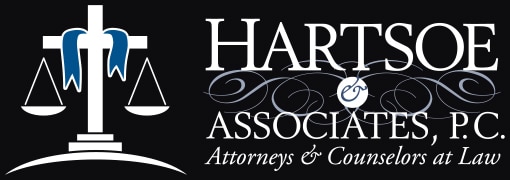
Winston-Salem & Greensboro Installment Agreement Attorneys
Legal guidance with payment plans and tax debt in the Piedmont Triad
When you are facing substantial tax debt, the law allows tax authorities to seize your assets or property to pay off your obligations. However, it is important to remember that you have rights. The law also allows individuals and businesses various solutions to resolve their tax debts, including installment plans, to face these issues head-on and move forward with a clean slate. Installment plans and agreements do involve complex planning and documentation, and require knowledgeable guidance.
The tax debt attorneys at Hartsoe & Associates, P.C. have been serving clients in the Triad for over two decades. We work to secure an installment agreement with the Internal Revenue Service (IRS) or the North Carolina Department of Revenue (NCDOR). If you have outstanding tax liability and debt, talk to us about working out an installment agreement as an alternative to ongoing government collection efforts. Let us help.
What is a tax debt installment agreement?
An installment agreement is much like it sounds – a payment plan arranged with the IRS or NCDOR that allows you to pay your tax debt, interest, and penalties over time. The state of North Carolina will not allow a taxpayer to set up an installment agreement on his/her own, but will send the taxpayer an official notice. Once the taxpayer receives that notice, he/she can then consider requesting an installment payment agreement, which will help avoid collection actions and penalties.
You can find out more about installment agreements for North Carolina taxes on the NCDOR website, and more about federal installment agreements on the IRS website. Or, you may contact Hartsoe & Associates for a consultation.
What are the different types of installment payment plans?
If you are facing an overwhelming amount of tax debt, an installment plan may be a workable solution. Installment agreements allow you to set up a plan with tax authorities to satisfy your debts and obligations through monthly payments. However, these plans and their rules can be complex, and a qualified tax attorney can help ensure the process goes smoothly and properly.
The IRS offers four types of installment payment plans and agreements, with different qualification and eligibility requirements.
Guaranteed installment agreement
To qualify for a guaranteed installment payment plan, you must meet the following guidelines:
- Owe $10,000 or less (not counting interest and penalties)
- Unable to pay the tax debt when due or within 120 days
- Have filed tax returns, paid back taxes, and not entered into another installment agreement at least five years before this current tax concern
- Agree to pay the tax debt within three years
- Agree to pay a minimum monthly payment
With a guaranteed installment plan, the IRS also agrees not to file a federal lien against your assets or property.
Streamlined installment agreement
A streamlined installment agreement is for taxpayers who owe a bit more. To qualify for a streamlined payment plan, you must meet the following:
- Owe $50,000 or less (not counting interest or penalties)
- Agree to pay the tax debt within six years
If you owe more than $25,000, the IRS may ask you to set up direct debit payments. Like a guaranteed installment plan, the IRS will not set up a federal lien on your property.
Non-streamlined installment agreement
This type of agreement can allow taxpayers who owe more than $50,000 to also make monthly payments. However, the IRS will make you negotiate for this type of payment plan, and requires a great deal of information about your income, assets, debts, and living expenses. It is in your best interests to work with an experienced attorney when negotiating with the IRS. The Winston-Salem lawyers at Hartsoe & Associates can speak with the IRS on your behalf.
Partial payment agreement
You may also qualify for a partial payment agreement, where the IRS will look at your ability to pay. They will calculate a monthly payment based on your income and living expenses, and then review that information every two years. You will pay every month until the time to collect your balance expires. Again, it is valuable to have a skilled Greensboro attorney on your side to help negotiate a lower monthly payment.
Could the IRS revoke my installment plan agreement?
Once the IRS or NCDOR approves your payment plan, it is considered a legal and binding agreement between the taxpayer and the government. However, if you fail to hold up your end of the agreement, the installment agreement may be revoked. These circumstances can include if you:
- Do not file or pay taxes after entering the agreement
- Miss any payments
- Have a dramatic change in financial circumstances
- Provide false or misleading information in your financial statements
The IRS or NCDOR should notify you of any change to your installment agreement 30 days in advance. Tax authorities do have the right to take legal action against any taxpayer who defaults on a payment plan, so if you receive one of these letters, it is vital to contact your tax attorney immediately to avoid any further penalties.
When facing any sort of tax debt or liability, always consult with an attorney before entering into any agreement with tax authorities. At Hartsoe & Associates, we work to find the best possible solution for your tax liabilities, saving you or your business as much money as possible and allowing you to continue living your day-to-day life.
Installment agreement attorneys assisting with tax debt
Significant tax debt can be overwhelming. With penalties and interest accumulating, you may feel you may never get out from under. The attorneys at Hartsoe & Associates, P.C. are here to help. Our team negotiates with the IRS and NCDOR on your behalf, strategizing a debt solution that works for you and your finances. We serve clients in Winston-Salem and Greensboro, as well as the Piedmont Triad. To schedule a consultation with an experienced attorney, please call 336-725-1985 or fill out our contact form.
